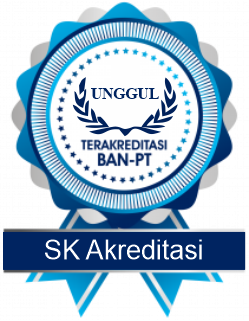You are here
Curriculum
Primary tabs
The Independent Campus curriculum for the Pancasila and Civic Education Study Program (PPKn) was prepared based on the Strategic Plan of the Faculty of Social Sciences (FSC) and the Yogyakarta State University (UNY) Strategic Plan for 2020-2025 by considering the dynamics of very fast change entering the industrial era 4.0 and the era of society. 5.0. These two eras brought the consequences of changes in various aspects such as economic, social, political, cultural, and employment which ultimately resulted in the demand for changes to the curriculum of study programs. This era clearly requires the presence of new human resource capacities, far exceeding the previously required competencies. Creativity and innovation are the keywords to succeed and achieve progress in the future era.
In addition to the strategic plan, changes in the vision, mission, goals, and strategic objectives of Faculty of Social Sciences (FSC) are also the basics for developing the curriculum for the Independent Campus of the Civics Study Program. The revision of the vision and mission of UNY, contained in Permenristekdikti Number 35 of 2017, article 29 concerning the UNY Statute, was adjusted to the grand design of UNY to answer the demands of the era of education. The regulation stipulates that the schemes that students can choose from include three patterns, namely Patterns 512, 611, and 602. These patterns guarantee the right to study outside the study program.
| No. | Module 1 (University Courses) |
| 1. | Islamic Education |
| Catholic Education | |
| Christian Education | |
| Hindu Education | |
| Buddhist Education | |
| Confucianism Education | |
| 2. | Pancasila |
| 3. | Indonesian Language |
| 4. | English |
| 5. | Digital Transformation |
| 6. | Creativity, Innovation and Entrepreneurship |
| 7. | Science Education |
| 8. | Civic Education |
| 9. | Educational Management |
| 10. | Sociology and Anthropology of Education |
| No. | Module 2 (Faculty Courses) |
| 1. | Basics of Social Science |
| 2. | Character Education and Professional Ethics |
| 3. | Statistics |
| No. | Module 3 (Study Program Courses) |
| 1. | Micro Teaching |
| 2. | Curriculum and Learning Pancasila and Citizenship Education |
| 3. | Pancasila and Citizenship Education Learning Strategy |
| 4. | Learning Media for Pancasila and Citizenship Education |
| 5. | Assessment of Pancasila and Citizenship Education Learning |
| 6. | Quantitative Research Methodology |
| 7. | Qualitative Research Methodology |
| 8. | Basics of Moral Education |
| 9. | Human Rights Education |
| 10. | Multicultural Education |
| 11. | Introduction to Indonesian Law |
| 12. | Introduction to Law |
| 13. | Civil Law |
| 14. | Commercial Law |
| 15. | Criminal Law |
| 16. | Constitutional Law Theory |
| 17. | Constitutional Law |
| 18. | State Administrative Law |
| 19. | Sociology of Law |
| 20. | Islamic Law |
| 21. | Philosophy of Law |
| 22. | Agrarian Law |
| 23 | Tax Law |
| 24. | Politics of Law |
| 25. | Legal Drafting & Contract Drafting |
| 26. | Customary Law |
| 27. | International Law |
| 28. | Civil Procedure Law |
| 29. | Criminal Procedure Law |
| 30. | Political Science |
| 31. | Political Theories |
| 32. | Political Sociology |
| 33. | Comparison of Government Systems |
| 34. | International Institutions |
| 35. | Public Policy |
| 36. | Local Politics |
| 37. | Theory of State |
| 38. | Pancasila Philosophy |
| 39. | Citizenship Science |
| 40. | Civic Education |
| No. | Module 4 (Elective Course) |
| 1. | Capita Selecta Politics |
| 2. | Capita Selecta of Law |
| 3. | Capita Selecta of Law |
| 4. | Religious Morals |
| 5. | Global Citizenship Education |
| 6. | National Character Education |
| 7. | Indonesian Political Economy |
| 8. | Employment Law |
| 9. | Indonesian Political System and Culture |
| 10. | Legal Drafting & Contract Drafting |
| 11. | Criminology |
| No. | Module 5 (Practices) |
| 1. | Micro Teaching |
| 2. | FieldWork Practices / Pancasila and Citizenship Education Field Work |
| 3. | Educational Practices (EP) |
| 4. | Community Services (KKN) |
| Bachelor's Thesis |
Kontak Kami
- Tel: 0274-586168 psw 1455
- Fax: 0274-548201
- Email: fishipol@uny.ac.id; humas_fishipol@uny.ac.id
- Website: https://fishipol.uny.ac.id/
Copyright © 2025,

